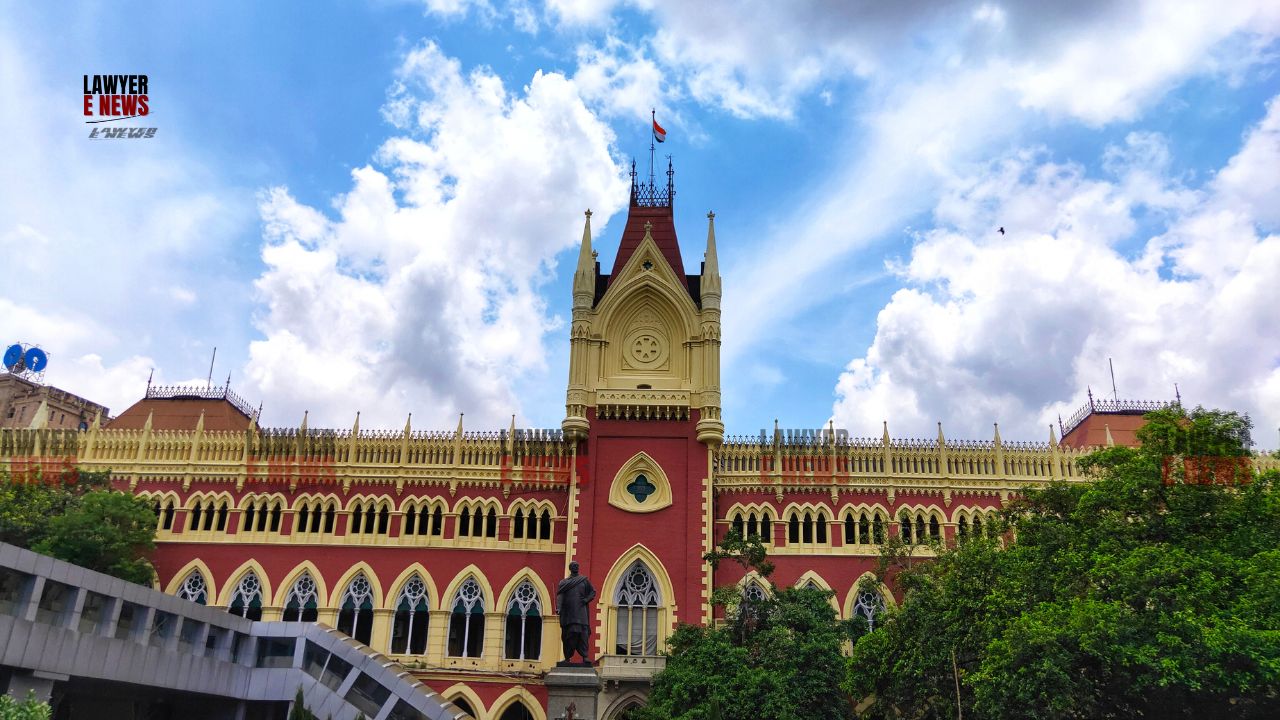-
by Admin
17 February 2026 2:34 PM



“Institutionalisation Shall Be the Measure of Last Resort” — Calcutta High Court on April 2, 2025 decided a deeply sensitive and legally significant case involving the guardianship and custody of two orphaned minors. Justice Sabyasachi Bhattacharyya and Justice Uday Kumar declared that “the appellant, till now, is the only person in the little lives of the children whom they know as their parent/guardian, and the entire world of both the children and the appellant, which revolve around each other, would be destroyed in a flash in the event the children are handed over to institutionalised care.”
The appellant, a public-spirited citizen, had rescued the mentally unsound mother of the children from the streets and subsequently raised her twin boys after the mother went missing. The Trial Court had rejected the appellant’s plea for guardianship under the Guardians and Wards Act, 1890, on the premise that the children were
“abandoned” under the Juvenile Justice (Care and Protection of Children) Act, 2015 (JJ Act) and must be placed under the control of the Child Welfare Committee (CWC).
The Division Bench overturned this approach, clarifying that “the JJ Act is an umbrella statute which is personal law-neutral,” rendering
arguments based on Mohammedan Personal Law, including the doctrine of Kafalah, inapplicable in this case. The Court held, “the appellant being a Hindu cannot invoke Mohammedan law, and the children, being Muslims, are to be protected under the JJ Act alone.”
The Court noted that mere technical classification under JJ Act definitions like “abandoned” or “surrendered” cannot operate automatically. “The children cannot be labelled as ‘abandoned children’ or ‘surrendered children’ without a conscious and formal act of abandonment or surrender by their biological mother or grandmother,” said the Court. It instead recognized that “the children are to be treated as ‘orphans’ under Section 2(42)(ii) of the JJ Act due to the incapacitation and absence of their mother.”
The Court emphasized, “Section 32(1) of the JJ Act does not mandate the handing over of the child to an institution if the child is an orphan but has family support.” Significantly, the Bench interpreted “family support” to include the appellant, observing that, “The word ‘family’ is not restricted to a multi-member family but can also comprise of an individual.”
The Court strongly reaffirmed the ”egis’ative mandate by stating, “Institutionalisation shall be the measure of last resort after making reasonable inquiry,” quoting Section 3(xii) of the JJ Act. The Court explained that the appellant’s continuous care for over three years, her financial commitment, and the consent of the maternal grandmother, all pointed towards adequate family support.
Citing the fundamental principles of the JJ Act, the Court observed, “The principle of best interest requires that all decisions regarding a child shall be based on the primary consideration that they are in the best interest of the child and to help the child to develop full potential.” The Bench added that “the principle of positive measures obliges the system to mobilize all available resources, including those of family and community, to reduce the need for institutional intervention.”
The Court therefore directed that “the matter be immediately placed before the Child Welfare Committee for inquiry under Section 36,” with a further mandate that “the CWC shall first consider whether the appellant may be recognized as a ‘fit person’ and allowed to continue custody, preferably for the long term.”
The Bench reminded that “Section 3”(1)(d) specifically permits the CWC to place children with a fit person, and this must be preferred over institutionalisation unless it is absolutely necessary.” The Court also ordered that foster care or sponsorship under Sections 37(1)€ and 37(1)(f) should also be explored as alternatives before considering institutionalisation.
In a crucial reminder to authorities, the Court stated, “The rigid application of procedural formalities must give way when the very purpose of the JJ Act is to secure the welfare and holistic development of children.”
The High Court thus preserved the existing relationship between the appellant and the minors, while leaving it to the CWC to finalize an appropriate solution strictly guided by the welfare of the children.
Date of Decision: April 2, 2025
